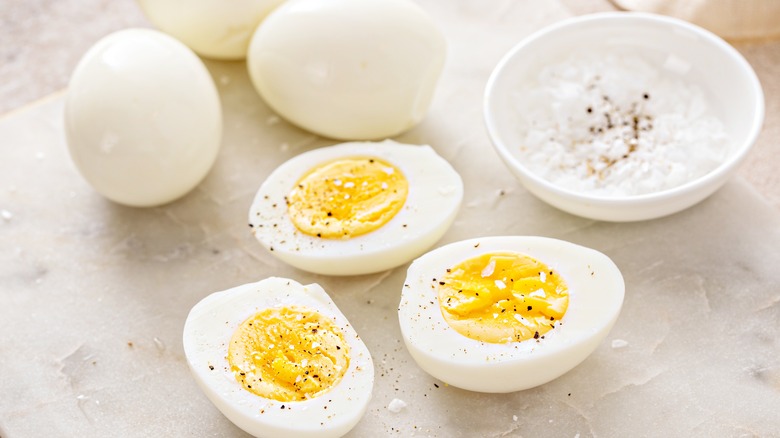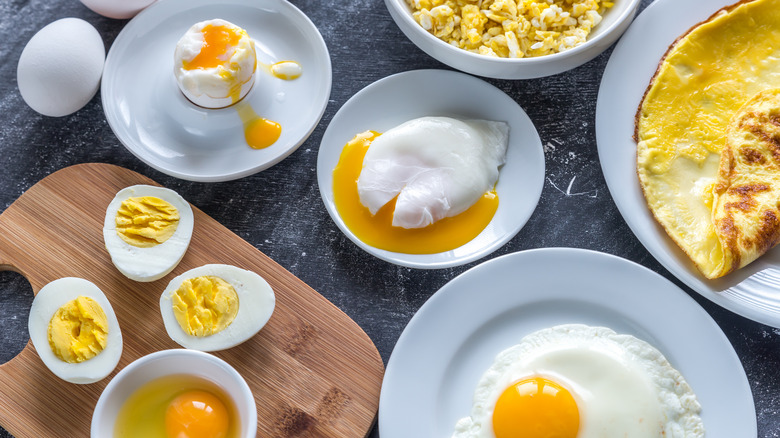We Asked An Expert: Here's Exactly How To Boil Eggs For The Best Results
Boiling an egg doesn't seem that complicated until you remember that the difference between a perfectly cooked creamy egg and a rubber ball is only a matter of minutes if not seconds. We talked to expert Nelson Serrano-Bahri, Chef and Director of Innovation at the American Egg Board, to learn all the ticks to boiling eggs for the best results.
According to Chef Serrano-Bahri, there is a universal tip when it comes to boiling eggs and that's starting them in cold water before bringing to a boil. "This reduces thermal stress on the egg, especially the shells which tend to crack," he said. The chef further added, "This method allows for the eggs to gradually heat up ... and ensures the egg is cooked evenly from edge to center. If you drop the egg in while the water is boiling, there's a chance the egg will crack against the bottom of the pan as it sinks down."
He went on to share the most important part of the whole egg boiling process, "The secret to consistently achieving the desired yolk texture is timing." According to Chef Serrano-Bahri, you need about 4-6 minutes for soft-boiled eggs, 7-9 minutes for medium-boiled eggs, and 10-12 minutes for hard-boiled eggs. A good way to drill these boiling windows into your head is to remember that the max you ever want to boil an egg is 12 minutes and to go down by three-to-four-minute increments for each following type of egg.
A boiled egg for every occasion
When you start in cold water, and have your timing down, the rest of the process is a cakewalk. Once your timer goes off, pull the eggs out of the boiling water and drop them into an ice bath to keep them from continuing to cook. A trick to help with peeling is to lightly crack the egg on the side your bowl or with a spoon, so water can get between the membrane and the egg. Once the eggs have completely cooled off and are safe for handling, you can go ahead and peel them.
Despite boiled eggs having one name and one method of cooking, there are many versions of the boiled egg — each serving different purposes. Soft-boiled eggs are great for ramen or rice dishes, coating each bite in creamy, gooey yolk. Hard-boiled eggs are ideal for cold salads, whereas medium-boiled eggs are great on their own or mashed into sandwiches. Or, if you want to get specific, we have a lot of creative ways to use hard-boiled eggs.
For those who haven't tried pickling eggs before, we highly suggest having some on hand for a snack packed with protein or a perfect compliment to happy hour. If you're really patient and adventurous, try making a century egg using your hard-boiled egg, it won't take you a century to enjoy your hard work, but will take a few months before you can enjoy the goth-looking, gelatinous egg seen mostly in Asian cuisine. We're also huge fans of the crowd-pleasing deviled eggs, as they're versatile, easy to make, and even easier to eat.

